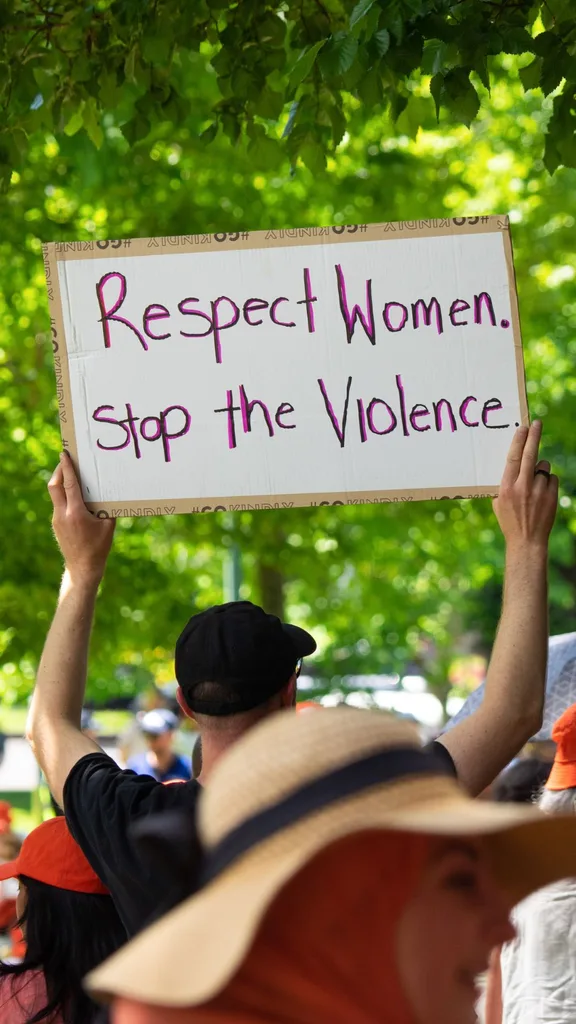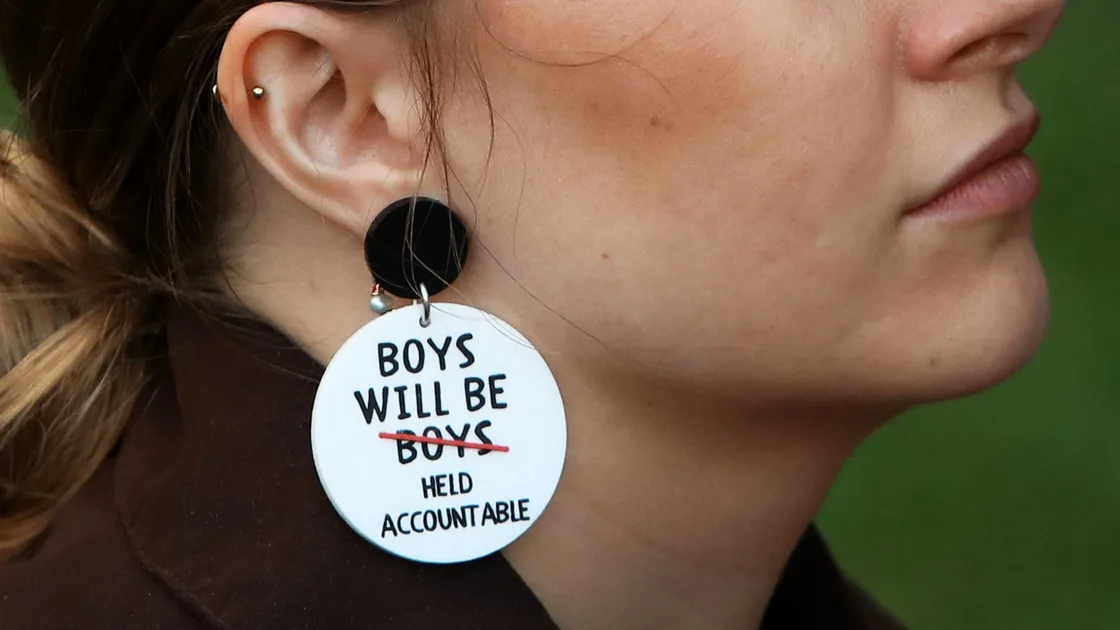November 25 marks the International Day for the Elimination of Violence Against Women, which signals the commencement of 16 Days of Activism Against Gender-Based Violence, observed in Australia and globally.
While the 16 Days of Activism have concluded, the end brings another sobering realization. During the period from November 25 to December 10, journalist Sherele Moody, founder of Australian Femicide Watch and The Red Heart Campaign, reported that eight women lost their lives.
According to Femicide Watch, this brings the total number of women killed in Australia this year to 97.
Now more than ever, it is crucial for men to take a stand and collaborate with women, other men, and themselves to prevent gender-based violence before it starts.
How Can Men Help End Violence Against Women?
Men can play a pivotal role in catalyzing genuine, solution-oriented change by actively challenging toxic conversations about women and harmful male stereotypes, while also amplifying and supporting women’s voices within their workplaces.
“Men have a vital role in stepping up, confronting damaging norms, and supporting initiatives aimed at eliminating violence,” states Rachel Bishop from the National Rally Collective. “These interventions not only bolster the campaign but contribute to enduring cultural and societal transformation.”
Data indicates that to effectively engage men and encourage their involvement, we must destigmatize and alleviate the pressures associated with traditional notions of masculinity. While this may appear simple, it is certainly not. Addressing behavioral conditioning before it escalates into violence is essential in preventing it from occurring in the first place.
- 4 in 5 men surveyed express a desire to change the alarming rates of violence against women, with 43% believing they cannot make a difference.
- 45% of men feel pressure to conform to traditional notions of masculinity.
- 24% feel this pressure predominantly at their workplaces.
Data from Our Watch
In her book Fixed It, author Jane Gilmour discusses how our attitudes are influenced by ingrained preconceptions and subconscious biases formed through countless interactions with the world—crafted by media, literature, and popular culture.
It is important to recognize that behaviors are predominantly learned rather than innate.
“Young men receive a significant amount of ‘guidance’ on masculinity through social media and popular culture, including pornography,” remarks Patty Kinnersly, CEO of Our Watch, a leading organization in the primary prevention of violence against women and their children. “To prevent violence before it manifests, we must work with young men and boys in educational settings, workplaces, and online platforms to help them understand what healthy masculinity means in their lives.”
“If we approach this correctly, young men are more likely to become respectful individuals who feel safe expressing their emotions and understand that violence is never a solution.”
Walking alongside women in calling out inappropriate behavior, providing support, and believing survivors is vital as we move forward.
Understanding the roots of domestic violence is crucial if we wish to end it. Research from organizations such as Australia’s National Research Organisation for Women’s Safety (ANROWS) indicates that men who perpetrate violence likely experienced violence during their childhood. “It is essential to recognize this aspect within the solutions we propose, all while holding men accountable for their current actions,” explains Dr. Tessa Boyd-Caine, CEO of ANROWS.
It’s Time for Dialogue

This year has witnessed a significant surge in support for initiatives, organizations, and educational programs that emphasize men’s involvement in preventing and halting violence against women.
While this marks an important step forward, sustaining real momentum will require a multifaceted approach.
“Now and in the future, it is vital to emphasize the need for men to engage in conversations that provoke change, encouraging responsibility for challenging toxic masculinity, addressing harmful behaviors, and embedding a culture of accountability and respect,” advises Bishop.
“To effectively minimize gender-based violence, grassroots and governmental initiatives must align. Community-driven education programs that focus on respect, consent, healthy relationships, and bystander intervention training are necessary to empower individuals.”
It is also crucial to recognize that such conversations may be uncomfortable, but urging men to confront that discomfort is key in driving change. These discussions play a significant role in dismantling the preconceptions that fuel disrespectful conduct. Although perfection is not required, these conversations need to occur.
- Challenge Disrespect: Speak out against derogatory or disrespectful behavior, even if it feels uncomfortable. You can do this by walking away, changing the subject, or directly addressing the issue.
- Listen to Women: Demonstrate support by actively listening to and seeking to understand the experiences of women and survivors.
- Advocate: Attend demonstrations, participate in events, and actively engage in the fight against violence.
- Encourage Healthy Conversations: Promote discussions around respect in all environments, from workplaces to sports fields.
- Educate: Set a positive example for sons, friends, and men in your life to help dismantle harmful male stereotypes.
Ways Men Can Engage
Suggested Reading, Viewing & Listening
Education extends far beyond the classroom. In an era where algorithm-driven social media perpetuates dangerous misinformation, misogyny, and hate speech, it’s increasingly important to seek out content that promotes respectful and positive narratives. Below are some recommendations:
Recommended Reading
Recommended Viewing
Recommended Listening
If you or someone you know is experiencing or at risk of domestic, family, or sexual violence, reach out to 1800RESPECT, the national guidance service. Call 1800 737 732, visit www.1800RESPECT.org.au, or text 0458 737 732. Men’s Referral Service: 1300 766 491.
Support Services for Family and Domestic Violence


